Experiencing the beauty of nature is one of life’s greatest joys, but as more people venture into the outdoors, the impact on fragile ecosystems grows.

From littering to overcrowding, human activity can leave a lasting mark on the very places we seek to admire. However, with the right mindset and responsible habits, it’s possible to explore nature while ensuring it remains untouched for future generations. By following these guidelines, you can enjoy the wonders of the natural world without harming them.
Stick to designated trails to protect ecosystems.
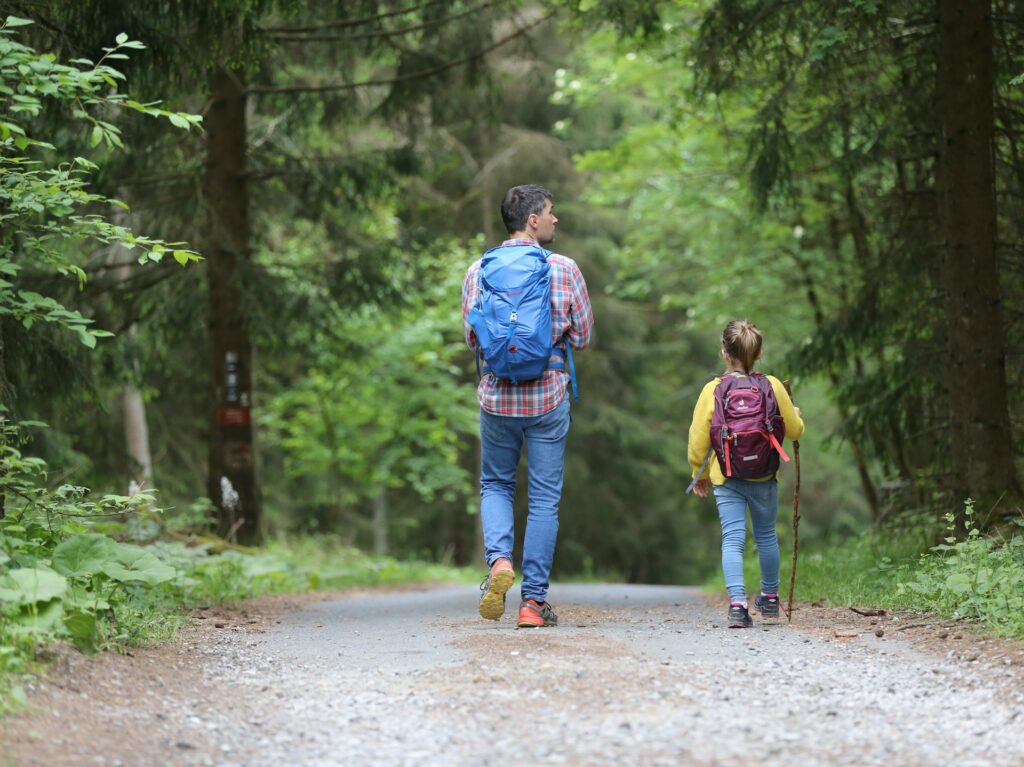
Wandering off marked trails may seem harmless, but it can damage fragile plants, disturb wildlife, and contribute to erosion. Many natural areas have carefully maintained paths to minimise human impact while still allowing access to beautiful landscapes.
By sticking to designated routes, you help preserve delicate habitats and reduce the long-term wear and tear on the environment. It also ensures that conservation efforts remain effective, keeping nature thriving while allowing people to explore responsibly.
Leave no trace behind when visiting nature.
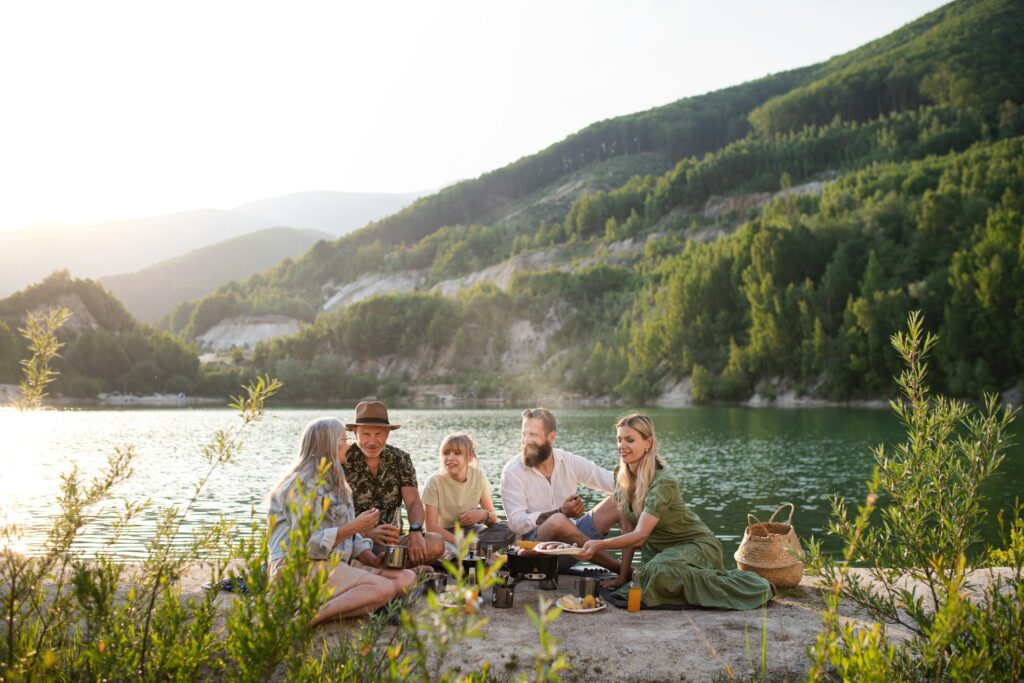
One of the most important principles of responsible exploration is leaving no trace. This means taking all rubbish with you, avoiding damage to plants and trees, and not leaving behind any non-biodegradable waste. Even small items like food wrappers or tissues can take years to decompose.
Carrying a small bag for waste ensures that you can clean up after yourself and even pick up any litter left by others. By making this a habit, you help keep natural spaces pristine and enjoyable for everyone.
Respect wildlife by observing from a distance.
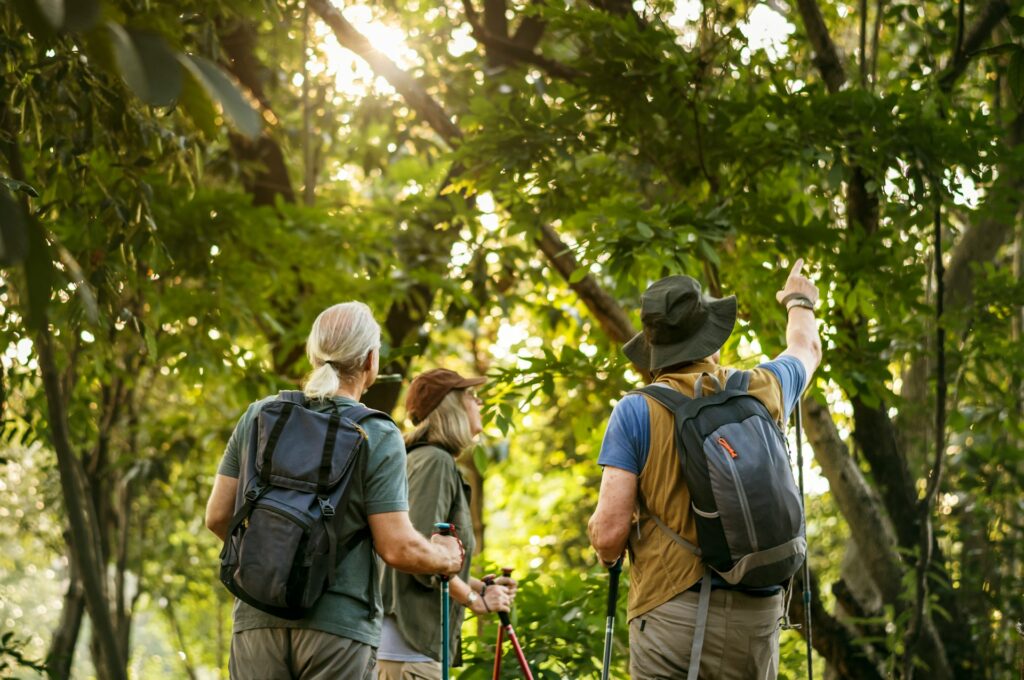
Getting too close to animals in the wild can stress them out, disrupt their natural behaviours, and even put you in danger. Feeding wildlife may seem like a kind gesture, but it often leads to animals becoming dependent on humans for food, which can harm their survival instincts.
Using binoculars or zoom lenses allows you to appreciate animals without disturbing them. Staying quiet and moving slowly also helps prevent unnecessary stress, ensuring that wildlife remains undisturbed in its natural habitat.
Choose eco-friendly transport to reduce your footprint.
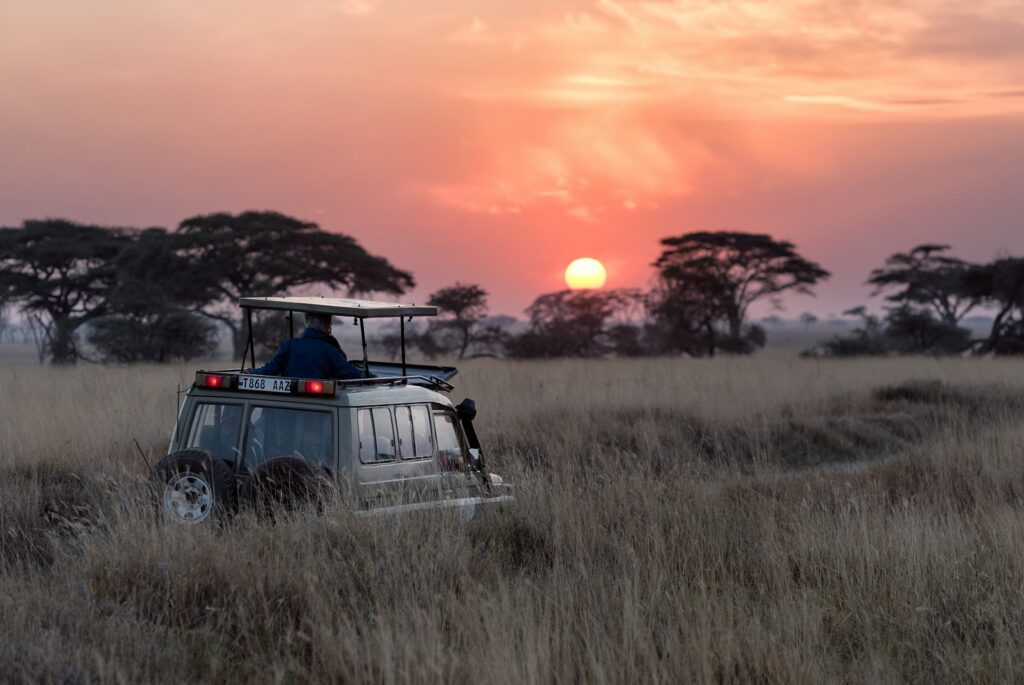
The way you travel to and through nature makes a big difference in your environmental impact. Driving petrol-fuelled vehicles into delicate ecosystems contributes to pollution and erosion, while excessive noise can disturb wildlife.
Opting for cycling, walking, or using electric transport where possible reduces emissions and keeps the air cleaner. If driving is necessary, carpooling or using designated parking areas helps limit environmental strain.
Support ethical and sustainable tourism initiatives.

Not all travel experiences are created equal when it comes to sustainability. Some tourism companies exploit natural environments for profit, while others work to conserve them through responsible practices. Choosing eco-friendly tour operators ensures that your adventures contribute positively to conservation efforts.
Look for companies that follow ethical guidelines, prioritise wildlife protection, and give back to local communities. By supporting businesses that care about sustainability, you help fund long-term conservation efforts while still enjoying the beauty of nature.
Camp responsibly without disturbing the environment.

Camping is a great way to connect with nature, but careless behaviour can leave a lasting impact. Setting up in unapproved areas, leaving food out, or using non-biodegradable materials can harm wildlife and disrupt the environment.
Using designated campsites, packing reusable gear, and properly disposing of waste ensures that your stay is as eco-friendly as possible. Choosing biodegradable soaps and keeping noise levels low also helps maintain the tranquillity of the natural world.
Avoid single-use plastics and bring reusable supplies.

Plastic waste is one of the biggest threats to nature, with discarded bottles, bags, and packaging harming wildlife and polluting ecosystems. Many remote locations lack proper waste management, meaning that what gets left behind often stays there for decades.
Carrying a reusable water bottle, food containers, and cloth bags significantly reduces waste. Many eco-conscious travellers also use bamboo cutlery and refillable toiletries to further minimise their environmental impact.
Be mindful of water sources and avoid contamination.
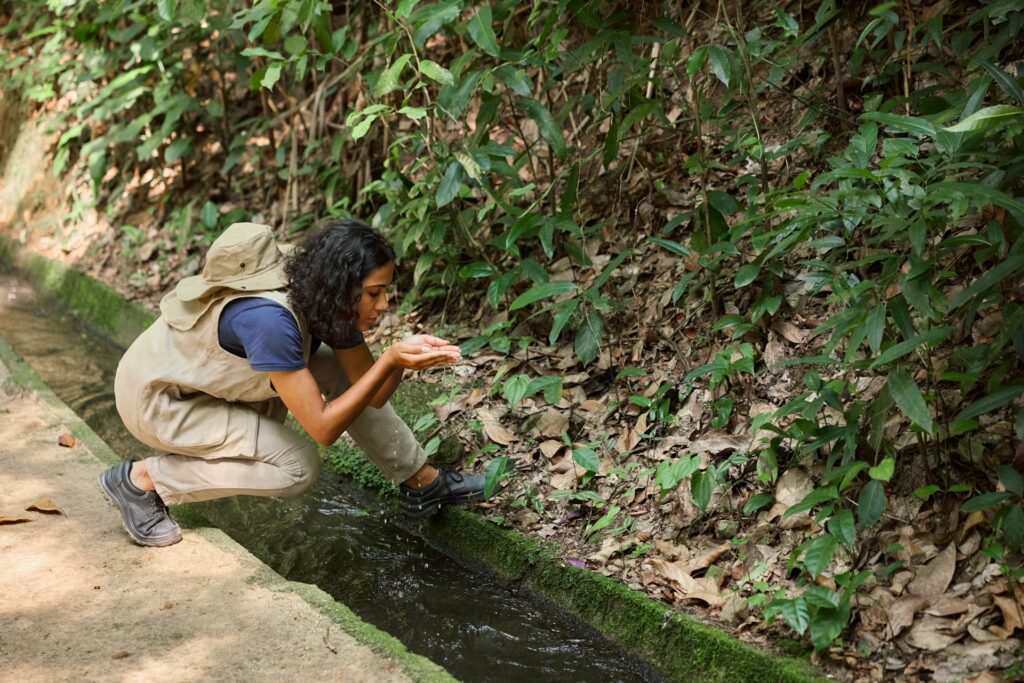
Lakes, rivers, and streams are vital for both wildlife and human communities, but they are easily polluted by careless actions. Washing with chemical-laden soaps, leaving waste near water sources, or trampling fragile banks can degrade water quality.
Using biodegradable toiletries, staying a safe distance from water sources when washing, and properly disposing of waste keeps these ecosystems clean. Being mindful of where you step also helps protect sensitive aquatic habitats.
Travel in smaller groups to reduce environmental impact.

Large crowds put excessive pressure on natural environments, compacting soil, scaring wildlife, and leading to more litter. Some of the world’s most beautiful destinations are suffering from overtourism, making it harder for ecosystems to recover.
Travelling in smaller groups minimises disturbance and makes for a more peaceful experience. Many conservation areas now limit visitor numbers to prevent damage, ensuring that nature can continue to flourish while still being enjoyed.
Educate yourself and others on conservation efforts.
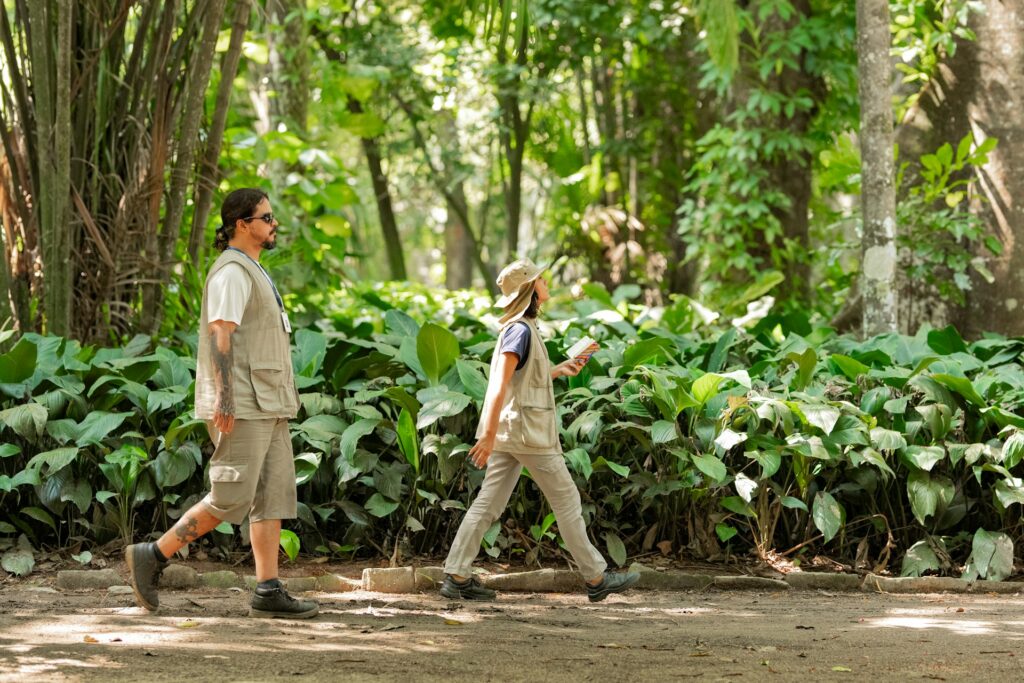
One of the most powerful ways to protect nature is by learning about conservation and sharing that knowledge with others. Many people unknowingly harm the environment, simply because they don’t realise the consequences of their actions.
Taking the time to read about local ecosystems, endangered species, and conservation laws allows you to make informed choices. Encouraging friends and family to be mindful of their impact helps create a collective effort to protect the natural world.
Choose responsible wildlife encounters over exploitative ones.
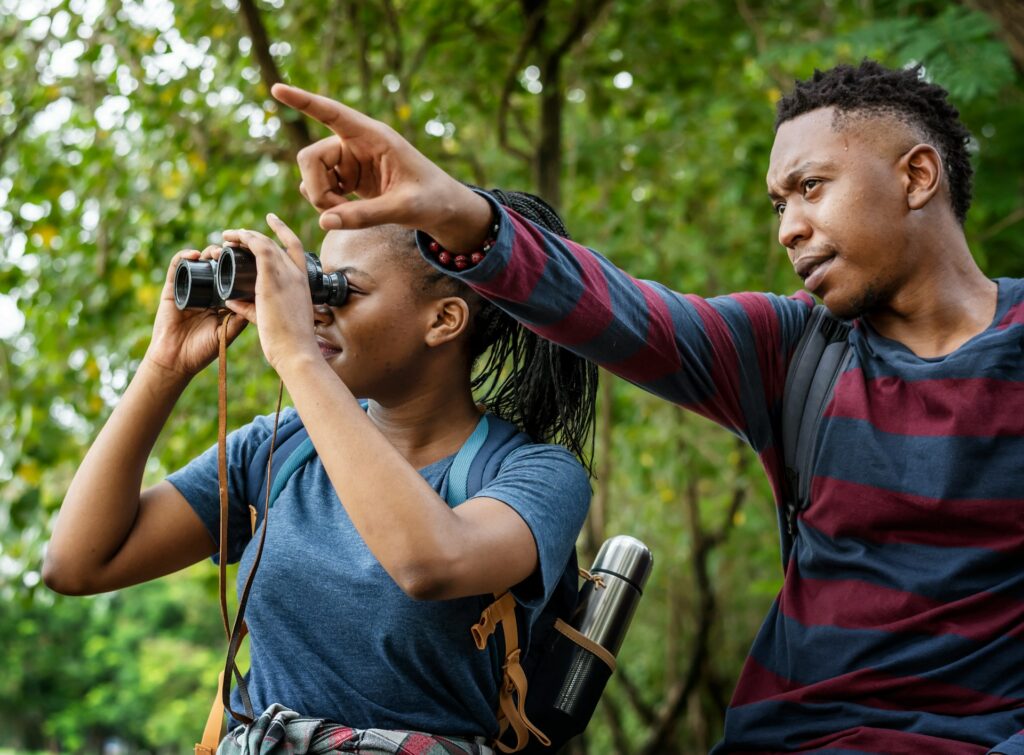
Many popular tourist attractions involve interactions with wildlife, but not all of them prioritise animal welfare. Activities like elephant rides, petting zoos with wild animals, or taking selfies with sedated creatures often involve cruelty and exploitation.
Instead, opt for experiences that allow animals to thrive in their natural habitat, such as ethical safaris or wildlife sanctuaries that prioritise conservation. Supporting responsible organisations ensures that tourism benefits wildlife rather than harming it.
Give back to nature through conservation efforts.
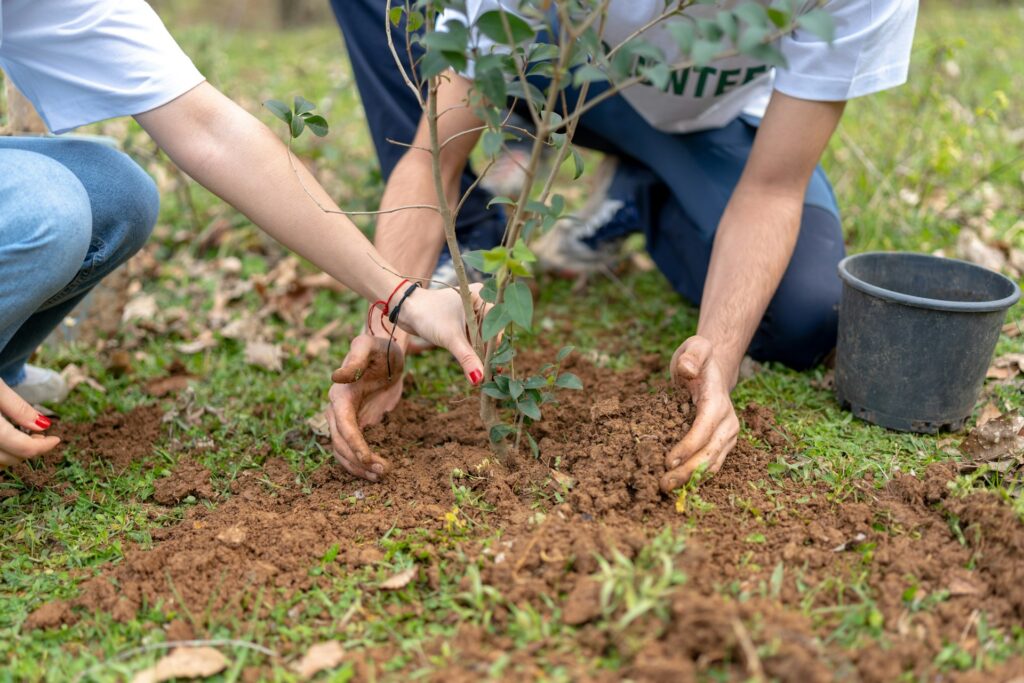
Exploring the natural world is a privilege, and giving back helps ensure that future generations can enjoy it too. Volunteering for clean-up projects, donating to conservation groups, or participating in reforestation programs all make a difference. Even simple acts, like planting native trees or supporting local environmental initiatives, contribute to the health of ecosystems. Small efforts from many people add up, helping to preserve nature’s beauty for years to come.
By adopting sustainable habits and making responsible choices, it’s possible to explore the natural world without leaving a negative impact. Whether through mindful travel, ethical tourism, or conservation efforts, everyone can play a part in protecting the planet’s most extraordinary places.